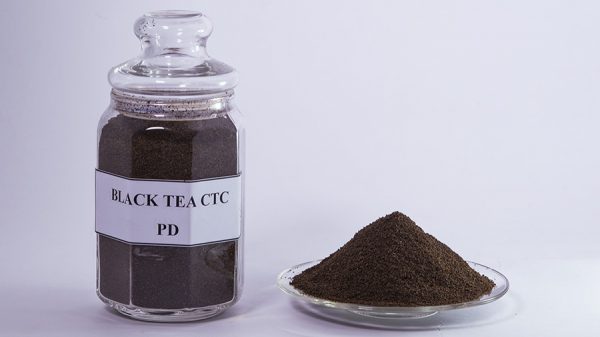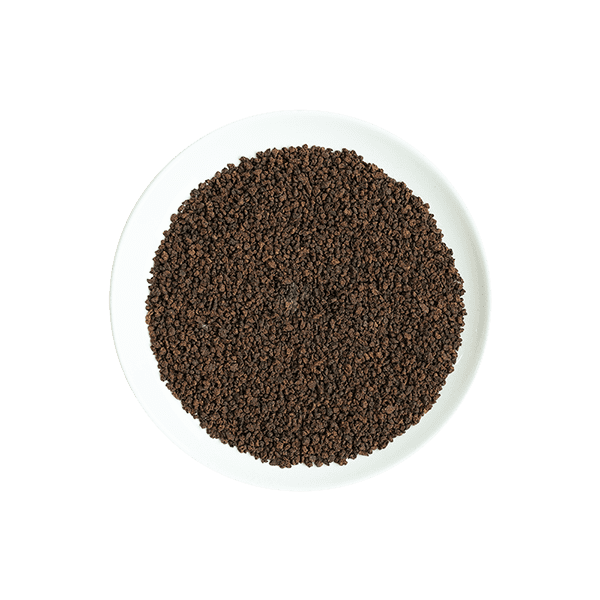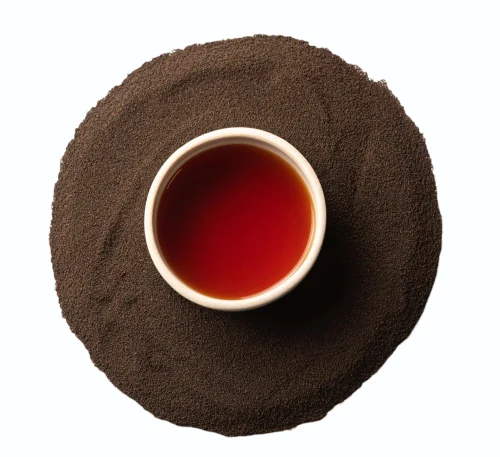Tin tức
CTC Black Tea – PD: From Production Process to Applications, Health Benefits and Consumption Trends
CTC Black Tea – PD is a specific grade of black tea produced using the Crush, Tear, Curl (CTC) method, where tea leaves are processed into small, uniform pellets. The “PD” stands for Pekoe Dust, indicating a fine, granular form of tea that is particularly popular for its strong flavor and quick brewing time.
This comprehensive guide explores the production process, health benefits, market trends, and quality standards associated with CTC Black Tea – PD, providing a deep dive into why this tea variety holds a significant place in both traditional tea consumption and modern beverage applications.

Contents
- 1 Introduction to CTC Black Tea – PD
- 2 The Production Process of CTC Black Tea – PD
- 3 Differentiating CTC Black Tea – PD from Other Grades
- 4 Health Benefits of CTC Black Tea – PD
- 5 Applications of CTC Black Tea – PD in Beverages
- 6 Market Trends and Consumption of CTC Black Tea – PD
- 7 Factors Affecting the Quality of CTC Black Tea – PD
- 8 Quality Standards and Certifications for CTC Black Tea – PD
Introduction to CTC Black Tea – PD
CTC Black Tea – PD is not just another type of black tea; it represents a particular method of production and a specific grade that sets it apart from other tea varieties. The CTC process itself is a method developed to meet the demands for a strong, brisk tea that brews quickly and yields a consistent flavor. The “PD” or Pekoe Dust grade is among the smallest and most finely ground varieties produced through this method, making it ideal for quick brewing and a robust flavor profile. This tea is widely favored in many regions for its versatility and strong taste, especially in the preparation of chai or tea blends where rapid infusion is desirable.
The Production Process of CTC Black Tea – PD
To understand what makes CTC Black Tea – PD unique, it’s essential to delve into the production process. The CTC method involves three primary steps: crushing, tearing, and curling.
- Crushing: Fresh tea leaves are fed through a series of cylindrical rollers with hundreds of sharp teeth that crush the leaves.
- Tearing: The crushed leaves are then torn into small, uniform pieces.
- Curling: Finally, the tea is curled into tiny pellets, which enhances the brewing potential of the tea, allowing it to release its flavor quickly when steeped.
For the PD grade, the resulting tea is sifted to ensure that only the finest particles, or dust, are retained. This fine granulation results in a tea that brews very quickly and delivers a potent flavor, making it particularly suitable for strong tea drinkers or for use in recipes that require a bold tea base, such as chai.

Differentiating CTC Black Tea – PD from Other Grades
One of the key aspects of CTC Black Tea – PD is understanding how it differs from other CTC grades. There are several grades of tea produced using the CTC method, each with distinct characteristics.
- BP (Broken Pekoe): Larger than PD, with a more delicate flavor.
- PF (Pekoe Fannings): Slightly coarser than PD but still quick to brew.
- PD (Pekoe Dust): The finest grade, offering a strong and brisk flavor ideal for quick, robust brews.
PD stands out due to its fine texture, which allows for rapid infusion and a concentrated taste. This makes it a preferred choice in environments where tea needs to be prepared quickly without sacrificing strength, such as in tea bags or in commercial tea production for ready-to-drink beverages.
Health Benefits of CTC Black Tea – PD
Like all black teas, CTC Black Tea – PD offers several health benefits thanks to its rich content of antioxidants, particularly flavonoids. These compounds are known to support cardiovascular health by improving blood vessel function and reducing cholesterol levels. Additionally, the polyphenols in black tea may contribute to cancer prevention, improve gut health by supporting beneficial bacteria, and provide a gentle energy boost due to the moderate caffeine content.
Moreover, regular consumption of CTC Black Tea – PD may aid in weight management by enhancing metabolism and fat oxidation. Its strong flavor also makes it easier to enjoy without adding sugar, helping to reduce calorie intake. Overall, while the health benefits of black tea are widely recognized, the specific processing of PD grade ensures a high concentration of these beneficial compounds in each cup.

Applications of CTC Black Tea – PD in Beverages
CTC Black Tea – PD is highly valued for its role in various beverage applications. Its strong flavor and quick brewing characteristics make it particularly well-suited for use in:
- Chai: The robust flavor of PD is ideal for blending with spices like cardamom, cinnamon, and cloves to create the traditional spiced tea known as chai.
- Iced Tea: Due to its fast infusion, PD is perfect for making iced tea where a quick, strong brew is needed to withstand dilution by ice.
- Tea Bags: The fine particles of PD are commonly used in tea bags, providing a quick, strong brew that is both convenient and flavorful.
To get the most out of CTC Black Tea – PD in these applications, it’s important to use the correct brewing techniques. For example, when making chai, brewing the tea directly with the spices and milk allows the full flavor to develop, creating a rich, aromatic beverage.
Market Trends and Consumption of CTC Black Tea – PD
The market for CTC Black Tea – PD has seen significant growth, particularly in regions where strong tea is preferred, such as in South Asia and the Middle East. The global demand for black tea has remained steady, with CTC teas, including PD, making up a significant portion of the market due to their ease of production and consistent quality.
Recent trends show an increasing interest in tea blends and ready-to-drink tea products, which has bolstered the popularity of PD grade tea. Its robust flavor allows it to hold up well in blends with other ingredients, such as herbs, spices, and fruit flavors. Moreover, the health benefits associated with black tea have made it a preferred choice among health-conscious consumers, further driving demand.

Factors Affecting the Quality of CTC Black Tea – PD
The quality of CTC Black Tea – PD is influenced by several factors, including the growing conditions of the tea leaves and the precision of the processing techniques.
- Geographical and Climatic Conditions: The region where the tea is grown plays a significant role in determining its flavor and quality. For instance, tea from higher altitudes tends to have a more complex flavor profile, while those grown in warmer, more humid conditions may produce stronger, more robust teas.
- Cultivation and Harvesting Techniques: The timing of the harvest and the methods used in cultivating the tea plants also impact the final product. For PD grade tea, ensuring that only the youngest, most tender leaves are used can enhance the tea’s flavor and strength.
Quality Standards and Certifications for CTC Black Tea – PD
To ensure that CTC Black Tea – PD meets the highest quality standards, it must adhere to various international certifications and quality benchmarks. These include:
- ISO Certifications: Ensuring consistent production quality.
- Fair Trade Certification: Indicating ethical sourcing and fair wages for tea farmers.
- Organic Certification: For teas grown without synthetic pesticides or fertilizers.
Such certifications not only guarantee the quality of the tea but also enhance its market value, making it more attractive to consumers who are increasingly concerned with ethical and sustainable products.
CTC Black Tea – PD represents a unique and important segment of the global tea market. Its robust flavor, quick brewing time, and versatility make it a favorite in many tea-drinking cultures. From its meticulous production process to its wide-ranging applications and health benefits, PD grade tea is both a traditional staple and a modern favorite. As market trends continue to evolve, CTC Black Tea – PD is likely to maintain its position as a preferred choice for both consumers and producers, driven by its consistent quality and the growing demand for strong, flavorful teas.
